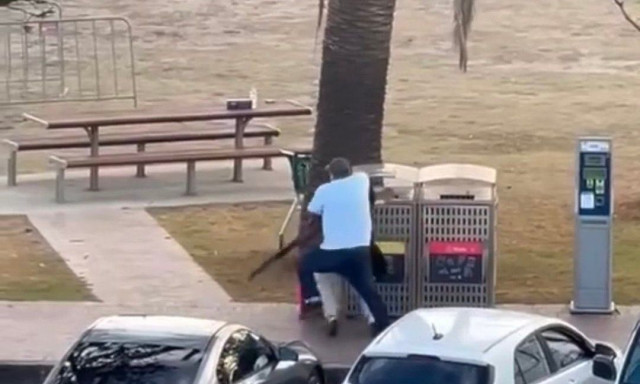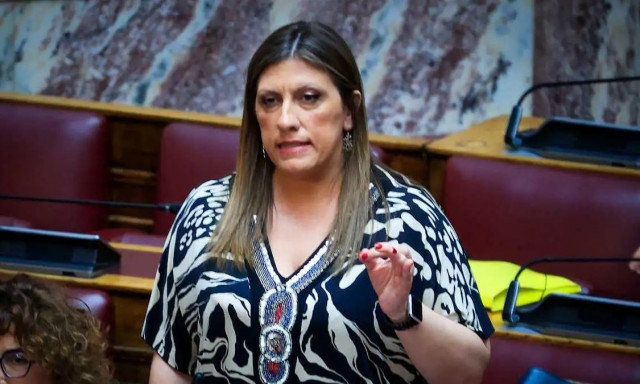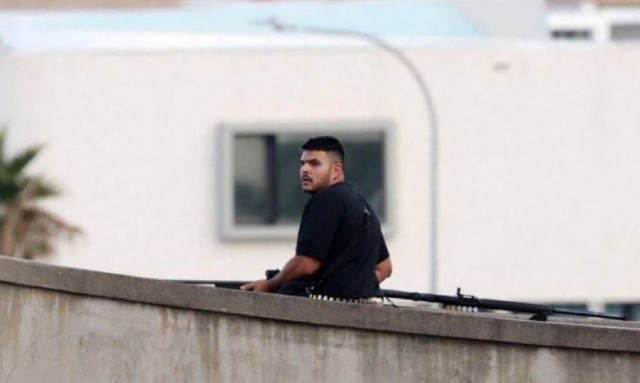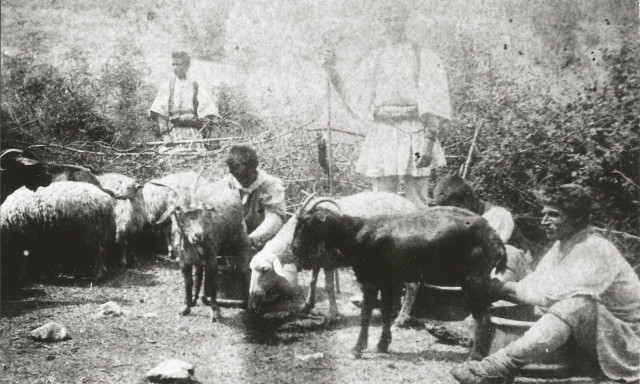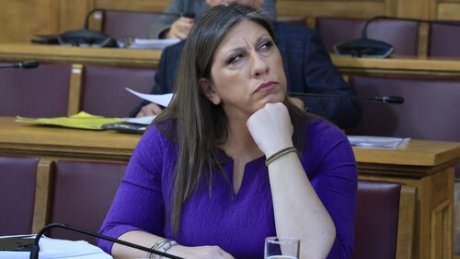Presidential vote: The gamble of greek government
Greek Prime Minister Antonis Samaras faces the first of three rounds of a presidential vote that will determine whether the country is forced into snap national elections and a new period of political chaos.

On 8th December Greek Prime Minister Antonis Samaras announced that an early presidential election would be hold in Greece and that the 300 MPs would be called to appoint a new head of State on 17th December. In order to be elected a candidate has to rally a qualified majority of 2/3, i.e. 200 votes during the first two rounds of voting and 3/5 of the vote i.e. 180 in the third round.
The present government comprises the Prime Minister's party New Democracy (ND) and the Panhellenic Socialist Movement (PASOK) led by Evangelos Venizelos, 155 MPs in all. If MPs do not appoint the new head of State Parliament will be dissolved within the ten days following the vote and legislative elections will be organised (between 25th January and 8th February 2015).
The most recent poll by Palmos for the information site TVXS credits the radical left-wing coalition (SYRIZA) led by Alexis Tsipras with 34.5% of the vote in the event of general elections and New Democracy with 32%. To Potami (The River) (centrist) follows these two parties, and then Chryssi Avghi (CA, Golden Dawn), a far right party which is due to win 8% of the vote ahead of PASOK with 5%.
The announcement of the presidential election made the Athens stock-exchange plummet by 12% on 9th December and by a further 2% the following day.
Interest rates on ten-year government bonds rose to 9.5% (3.5% in July).
This presidential election comes 3 months ahead of time and is a political gamble on the part of the Greek Prime Minister Antonis Samaras. The presidential election was planned in Greece for the first quarter of 2015. The outgoing Head of State Carolos Papoulias, who is ending his second mandate, cannot stand again. The presidential office in Greece is an honorary one. By depriving the head of State of the right to dissolve the Parliament the constitutional revision of 1986 meant that the role became simply honorary.
The Prime Minister said he wants rid the country of the uncertainty that is now weighing over it, so that he can negotiate with the Troika (IMF, World Bank and the EU) at the beginning of the next year. It would appear then that the presidential election is a vote of confidence for the government so that it can continue its reforms.
"The period now approaching is vital as we need to come to agreement with the euro zone countries, settle issues surrounding the debt, Greece must be fully capable of mobilising its political class in a climate of national unity and political stability," declared the head of government.
Antonis Samaras accuses SYRIZA of wanting to plunge the country into instability prior to the negotiations with the Troika. "The government cannot accept these blatant bids to destabilise the country. This political uncertainty must stop immediately," declared Sofia Voultepsi, the government's spokesperson. "Antonis Samaras hopes to trap SYRIZA. If there are early elections at the beginning of 2015 the next government will not have time to negotiate with the Troika and the latitude enjoyed by a government led by Alexis Tspiras will be limited," declared Georges Séfertzis. "The government believes that a vote now is an advantage: it does not have to take any further austerity measures that would damage its popularity making the vote in favour of its candidate more difficult to win," indicated he PASOK leader, Evangelos Venizelos said that his party was prepared to vote for a candidate from the right. "There is only one important criterion: that the candidate can unite the Greeks," he declared. He stressed that he appreciated Stavros Dimas, whom he qualified as a moderate politician with a long career, maintaining that he was the best possible successor to Carolos Papoulias.
To Potami deplores the fact the Prime Minister has called on a "reservist". "The old political system is incapable of renewal. In spite of the fact that Stavros Dimas is honest and moderate he is still constrained by the limits of the partisan system." The party hopes that the head of State will be "a citizen who expresses the dynamism of Greek society and not a former political leader."
Finally Alexis Tsipras for SYRIZA and Panos Kammemos, leader of the Independent Greeks Party (ANEL) have said that their parties will not vote in this election. ANEL just like the Democratic Left (DIMAR), which is losing ground in the polls, does not have any interest in the organisation of early general elections. In order to get his candidate elected Antonis Samaras has to find 25 missing votes amongst the 24 independent MPs and the 10 MPs from DIMAR and/or the 12 ANEL MPs who sit in Parliament.
Since 2010 Athens has received 240 billion euro from the international community. Greece has not yet finished negotiating the terms of payment of the first tranche of aid with its creditors. On 8th December the euro zone Finance Ministers accepted to extend the aid programme enjoyed by the country by two months – this postponement was asked for by Antonis Samaras to help his country come to an agreement with itscreditors.
The announcement of the presidential election also came just hours after this decision which opened the way for SYRIZA to say that the early election was in fact a Troika decision since it hopes to push through further austerity measures and that it is blackmailing MPs.
After six years of recession the Greek economy should, according to analysts, recover growth this year. In 2013 Athens recorded the lowest GDP contraction since 2008 notably thanks to a smaller shrinkage in household consumption and the recovery of tourism. But after months of political stability the spectre of a Greece in crisis is now re-emerging. On 7th December the budget – the first balanced one in several decades – was approved by a narrow majority (155 votes in support, 134 against). The country has experienced several social movements against any further reductions in retirement pensions, job cuts in the civil service and any further wages squeezes. On 17th November 40,000 people marched in Athens in memory of the student uprising of 1973 which was severely repressed at the time by the dictatorship in office. Ten days later the country faced a general strike. On 6th December tens of thousands of people turned out to support Nikos Romanos, a student sentenced to 15 years in prison for having attacked a bank in 2013 and who started a hunger strike on 10th November following the court's refusal to allow him to continue his course of study in prison. 300 people were arrested during demonstrations on 6th December.
Over the last few months Alexis Tspiras has been more moderate, visibly trying to reassure investors and voters and to show that he deserves to be in office. He is still asking for a restructuring of the Greek debt and an increase in public spending. He qualifies the present situation as "desperate".
The government accuses him of maintaining political uncertainty which is preventing the country from freeing itself from the guardianship of its creditors. In Antonis Samaras's opinion the choice is clear: "continue on the path towards good fiscal health and continue reform or return to the period of deficits and block reform.
The first round of the presidential election is taking place on 17th December. The 2nd and 3rd rounds will probably take place on 23rd and 29th December.
Exceptionally the European Union, which does not usually intervene in the Member States' domestic affairs, said on 10th December via a European Commission spokesperson that it supported Stavros Dimas, maintaining that the candidate was "a former Commissioner and a dedicated European".
(Source: www.robert-schuman.eu)
Διαβάστε επίσης

